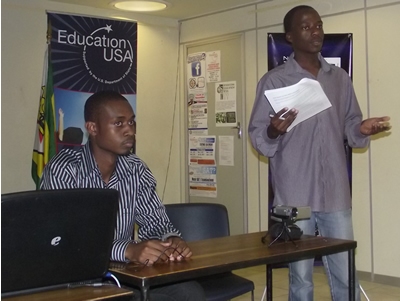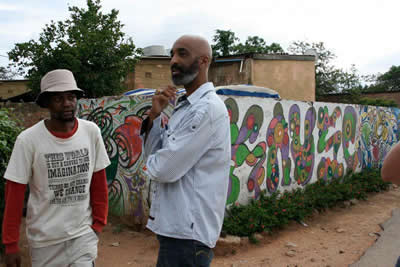16 Days of Activism: is an HIV-free Zimbabwe possible?
Wednesday, November 30th, 2011 by Varaidzo TagwireyiHosted by Def Zee (Definitely Zimbabwean) at the US Embassy’s Public affairs section, was a discussion entitled The Small House Saga. The team from Def Zee showed 2 video clips, one of an interview with a young woman who is currently a small house (having a committed relationship with a married man), and a prostitute from the Avenues area of Harare.
Small houses, are a growing phenomenon and are very much an ‘officially’ unofficial part of societal and family structures. It is not to say that this is a new practice. Men have been having long-term extra-marital affairs, even having families, since time immemorial. The majority of men at the event thought that having a small house was okay. The small house interviewed explained that she was faithful to her man and that she trusted that he was faithful too and that they therefore do not use condoms. The truth of the matter is that many people are not faithful, and since couples tend not to protect themselves during sex when in these types of relationships than in casual sexual encounters, small houses may be loopholes that continue to spread HIV.
The role of prostitution in the spread of HIV/AIDS was also discussed. The prostitute interviewed revealed that over 75% of the men who paid for sex with her did not want to use a condom, and that the vast majority of her clients were indeed married men. Nearly half the audience was in favour of legalizing prostitution in order that the country can benefit from the tax revenue and that the practice may be monitored and regulated for the safety of all involved. The reasons women turned to this ‘profession’ were also explored, with poverty being identified as the chief reason. Clearly, the issues of small houses and prostitution are multi-faceted and require careful consideration, but it is encouraging to see youth talking about such issues in the hope of curbing the spread of HIV. Let me leave you with a question that was asked at yesterday’s discussion: In light of the prevalence of small houses and prostitution, do you think that an HIV/AIDS-free generation is achievable in Zimbabwe?
This email was cleaned by emailStripper, available for free from http://www.papercut.biz/emailStripper.htm











